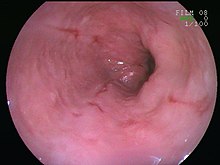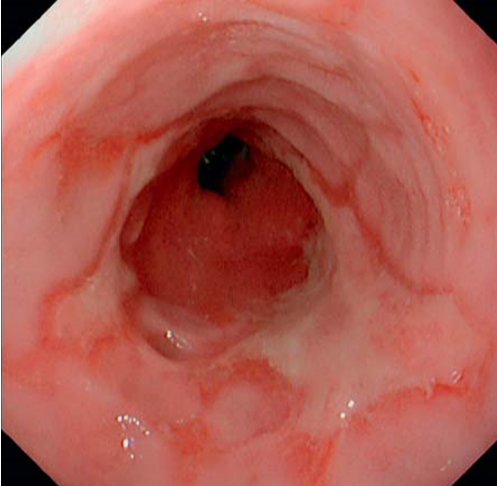Common Symptoms of Esophagitis

Diffuse esophageal spasms are also known as dysphagia esophagitis. These are caused when the sphincter between the esophagus and stomach contracts at a rapid rate. This is often seen in people who have recently eaten a large meal.
These spasms usually occur because the gastroesophageal valve is unable to open up fully for some reason. Diffuse esophagitis occurs when there is no abnormality. Some of the other symptoms associated with diffuse esophagitis are nausea, vomiting and belching.
Another common symptom is hoarseness. This occurs because the sphincter will be in a partially closed position. In this position the sphincter is unable to relax fully, causing it to push the valve closer together. The resulting pressure will cause the sphincter to tighten up, making it impossible for the person to swallow.
When this happens it can cause gastric acid reflux. This means that the acid will be regurgitated back into the esophagus. This can occur because the valve is too narrow or because it is not able to completely close. If this occurs the gastroesophageal valve will need to be re-opened.
Symptoms of diffuse esophagitis include belching, nausea, vomiting, and hoarseness. These symptoms can also occur in conjunction with other gastroesophageal disorders. They are usually the first signs of severe conditions such as ulcerative colitis, duodenal ulcer and Barrett's esophagus.
There are a number of common treatments for diffuse esophagitis. These include antibiotics and anti-inflammatory drugs.
Anti-inflammatory drugs are usually taken to reduce inflammation in the gastroesophageal tract. This will help relieve pain caused by esophagitis. A topical anti-inflammatory cream will also be applied to relieve pain caused by reflux.
Esophagitis can sometimes cause complications such as intestinal bleeding. If you have intestinal bleeding, surgery may be the best solution. Esophagitis can also lead to esophagitis.
This can happen if the esophagitis does not heal after a few days and causes damage to the esophagus

In some cases, it may be necessary to remove the bowel to get rid of the problem. The operation involves an incision around the esophagus and the lining of the stomach or duodenum. This process can take many hours, so doctors may want to do it as soon as symptoms appear.
Although esophagitis does not cause symptoms, some people may feel a burning sensation in their throat. It can be caused by acid reflux, which makes your throat very sore.
Some symptoms may indicate that you should see a doctor immediately. Symptoms of esophageal spasm include:
- A burning feeling when swallowing or coughing may indicate that the sphincter is partially open. This is usually caused by acid reflux. You may also feel a tight feeling in your chest. If the esophagus has become damaged, then there may be pain in the chest as well.
- Sometimes you may feel pain when swallowing, especially if you do not eat properly. This can cause vomiting. A feeling of fullness in the stomach or difficulty swallowing may indicate that the valve is closed.
- Esophagitis is usually treated with anti-inflammatory medications that can help ease the symptoms and help to heal the damage done to the esophagus. In some cases surgery may be used. Surgery may also be recommended if the damage is extensive.
The main reason why a person gets esophagitis is because they are not taking any medications to help with acid reflux. This is common in those who do not have a family history of it or who are very active. Other people may get it if they are eating foods that are too high in cholesterol or fatty foods.
There may be more serious cases where surgery is recommended. If the damage is extensive, then surgery may be needed to repair the problem.
If you feel that you are experiencing symptoms of esophagitis, you may want to go see your doctor to make sure that you are not having esophagitis. and that you are not having acid reflux. The doctor may be able to determine whether you are having heartburn or a heart attack.
